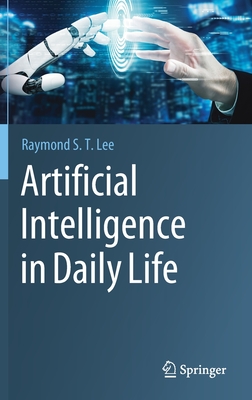The Question of Artificial Intelligence: Philosophical and Sociological Perspectives
暫譯: 人工智慧的問題:哲學與社會學的視角
Bloomfield, Brian P.
買這商品的人也買了...
-
 Artificial Intelligence: A Modern Approach, 3/e (GE-Paperback)
Artificial Intelligence: A Modern Approach, 3/e (GE-Paperback)$1,450$1,421 -
 Artificial Intelligence in Daily Life
Artificial Intelligence in Daily Life$1,800$1,764
相關主題
商品描述
Originally published in 1987 when Artificial Intelligence (AI) was one of the most hotly debated subjects of the moment; there was widespread feeling that it was a field whose 'time had come', that intelligent machines lay 'just around the corner'. Moreover, with the onset of the revolution in information technology and the proclamation from all corners that we were moving into an 'information society', developments in AI and advanced computing were seen in many countries as having both strategic and economic importance. Yet, aside from the glare of publicity that tends to surround new scientific ideas or technologies, it must be remembered that AI was a relative newcomer among the sciences; that it had often been the subject of bitter controversy; and that though it had been promising to create intelligent machines for some 40 years prior to publication, many believe that it had actually displayed very little substantive progress.
With this background in mind, the aim of this collection of essays was to take a novel look at AI. Rather than following the path of old well-trodden arguments about definitions of intelligence or the status of computer chess programs, the objective was to bring new perspectives to the subject in order to present it in a different light. Indeed, instead of simply adding to the endless wrangling 'for' and 'against' AI, the source of such divisions is made a topic for analysis in its own right. Drawing on ideas from the philosophy and sociology of scientific knowledge, this collection therefore broke new ground. Moreover, although a great deal had been written about the social and cultural impact of AI, little had been said of the culture of AI scientists themselves - including their discourse and style of thought, as well as the choices, judgements, negotiations and competitive struggles for resources that had shaped the genesis and development of the paradigmatic structure of their discipline at the time. Yet, sociologists of science have demonstrated that the analysis of factors such as these is a necessary part of understanding the development of scientific knowledge. Hence, it was hoped that this collection would help to redress the imbalance and provide a broader and more interesting picture of AI.
商品描述(中文翻譯)
最初於1987年出版,當時人工智慧(AI)是最受熱議的主題之一;普遍認為這是一個「時機已到」的領域,智能機器「就在眼前」。此外,隨著資訊科技革命的到來,以及各方宣稱我們正邁向「資訊社會」,許多國家將AI和先進計算的發展視為具有戰略和經濟重要性。然而,除了圍繞新科學思想或技術的耀眼宣傳外,必須記住AI在科學界中相對較新;它經常成為激烈爭論的主題;儘管在出版前的40年中,它曾承諾創造智能機器,但許多人認為它實際上顯示出非常有限的實質進展。
考慮到這一背景,本書的目的是對AI進行新穎的探討。與其遵循關於智能定義或電腦棋程式狀態的老生常談,目標是為這一主題帶來新的視角,以便以不同的方式呈現它。事實上,這本書不僅僅是對AI的無休止爭論進行補充,而是將這種分歧的根源作為一個獨立的分析主題。因此,這本書借鑒了科學知識的哲學和社會學的思想,開創了新的領域。此外,儘管已有大量關於AI的社會和文化影響的著作,但對AI科學家自身的文化,包括他們的話語和思維風格,以及塑造他們學科範式結構的資源選擇、判斷、協商和競爭鬥爭,卻鮮有提及。然而,科學社會學家已經證明,分析這些因素是理解科學知識發展的必要部分。因此,希望這本書能幫助糾正這一不平衡,提供一個更廣泛和更有趣的AI圖景。











